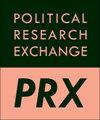{"title":"两极分化的病毒:德国关于Covid-19的在线辩论","authors":"Fabiana Schmid, Oliver Treib, F. Eckardt","doi":"10.1080/2474736x.2022.2150087","DOIUrl":null,"url":null,"abstract":"To what extent do online debates display features of political polarization and in how far does polarization pose a problem for democracy? We zoom in on affective polarization: the formation of societal groups with hostile feelings towards each other, arguing that affective polarization is particularly problematic for democracy if it features elements of political intolerance, which undermines key tenets of even the most conflict-prone theories of democracy. While affective polarization has been on the rise in several countries, Germany has been considered to be a country with low, and even declining levels of affective polarization. But does this still hold true during the Covid-19 pandemic, which saw a rapid rise in conspiracy theories? Based on a qualitative discourse analysis of online debates about Covid-19 on the Facebook platforms of a mainstream and a non-mainstream German media outlet, we find strong traces of affective polarization on both platforms, involving clear indications of political intolerance. Our findings suggest that the democratic discourse is threatened by the nature of online debates about Covid-19, and it is threatened not only by anti-rationalist conspiracists at the ideological extremes but also by the intolerance of more moderate rationalists at the centre of the political spectrum. © 2022 The Author(s). Published by Informa UK Limited, trading as Taylor & Francis Group.","PeriodicalId":20269,"journal":{"name":"Political Research Exchange","volume":"1 1","pages":""},"PeriodicalIF":1.8000,"publicationDate":"2022-11-28","publicationTypes":"Journal Article","fieldsOfStudy":null,"isOpenAccess":false,"openAccessPdf":"","citationCount":"2","resultStr":"{\"title\":\"The virus of polarization: online debates about Covid-19 in Germany\",\"authors\":\"Fabiana Schmid, Oliver Treib, F. Eckardt\",\"doi\":\"10.1080/2474736x.2022.2150087\",\"DOIUrl\":null,\"url\":null,\"abstract\":\"To what extent do online debates display features of political polarization and in how far does polarization pose a problem for democracy? We zoom in on affective polarization: the formation of societal groups with hostile feelings towards each other, arguing that affective polarization is particularly problematic for democracy if it features elements of political intolerance, which undermines key tenets of even the most conflict-prone theories of democracy. While affective polarization has been on the rise in several countries, Germany has been considered to be a country with low, and even declining levels of affective polarization. But does this still hold true during the Covid-19 pandemic, which saw a rapid rise in conspiracy theories? Based on a qualitative discourse analysis of online debates about Covid-19 on the Facebook platforms of a mainstream and a non-mainstream German media outlet, we find strong traces of affective polarization on both platforms, involving clear indications of political intolerance. Our findings suggest that the democratic discourse is threatened by the nature of online debates about Covid-19, and it is threatened not only by anti-rationalist conspiracists at the ideological extremes but also by the intolerance of more moderate rationalists at the centre of the political spectrum. © 2022 The Author(s). Published by Informa UK Limited, trading as Taylor & Francis Group.\",\"PeriodicalId\":20269,\"journal\":{\"name\":\"Political Research Exchange\",\"volume\":\"1 1\",\"pages\":\"\"},\"PeriodicalIF\":1.8000,\"publicationDate\":\"2022-11-28\",\"publicationTypes\":\"Journal Article\",\"fieldsOfStudy\":null,\"isOpenAccess\":false,\"openAccessPdf\":\"\",\"citationCount\":\"2\",\"resultStr\":null,\"platform\":\"Semanticscholar\",\"paperid\":null,\"PeriodicalName\":\"Political Research Exchange\",\"FirstCategoryId\":\"1085\",\"ListUrlMain\":\"https://doi.org/10.1080/2474736x.2022.2150087\",\"RegionNum\":0,\"RegionCategory\":null,\"ArticlePicture\":[],\"TitleCN\":null,\"AbstractTextCN\":null,\"PMCID\":null,\"EPubDate\":\"\",\"PubModel\":\"\",\"JCR\":\"Q2\",\"JCRName\":\"POLITICAL SCIENCE\",\"Score\":null,\"Total\":0}","platform":"Semanticscholar","paperid":null,"PeriodicalName":"Political Research Exchange","FirstCategoryId":"1085","ListUrlMain":"https://doi.org/10.1080/2474736x.2022.2150087","RegionNum":0,"RegionCategory":null,"ArticlePicture":[],"TitleCN":null,"AbstractTextCN":null,"PMCID":null,"EPubDate":"","PubModel":"","JCR":"Q2","JCRName":"POLITICAL SCIENCE","Score":null,"Total":0}
引用次数: 2
The virus of polarization: online debates about Covid-19 in Germany
To what extent do online debates display features of political polarization and in how far does polarization pose a problem for democracy? We zoom in on affective polarization: the formation of societal groups with hostile feelings towards each other, arguing that affective polarization is particularly problematic for democracy if it features elements of political intolerance, which undermines key tenets of even the most conflict-prone theories of democracy. While affective polarization has been on the rise in several countries, Germany has been considered to be a country with low, and even declining levels of affective polarization. But does this still hold true during the Covid-19 pandemic, which saw a rapid rise in conspiracy theories? Based on a qualitative discourse analysis of online debates about Covid-19 on the Facebook platforms of a mainstream and a non-mainstream German media outlet, we find strong traces of affective polarization on both platforms, involving clear indications of political intolerance. Our findings suggest that the democratic discourse is threatened by the nature of online debates about Covid-19, and it is threatened not only by anti-rationalist conspiracists at the ideological extremes but also by the intolerance of more moderate rationalists at the centre of the political spectrum. © 2022 The Author(s). Published by Informa UK Limited, trading as Taylor & Francis Group.


